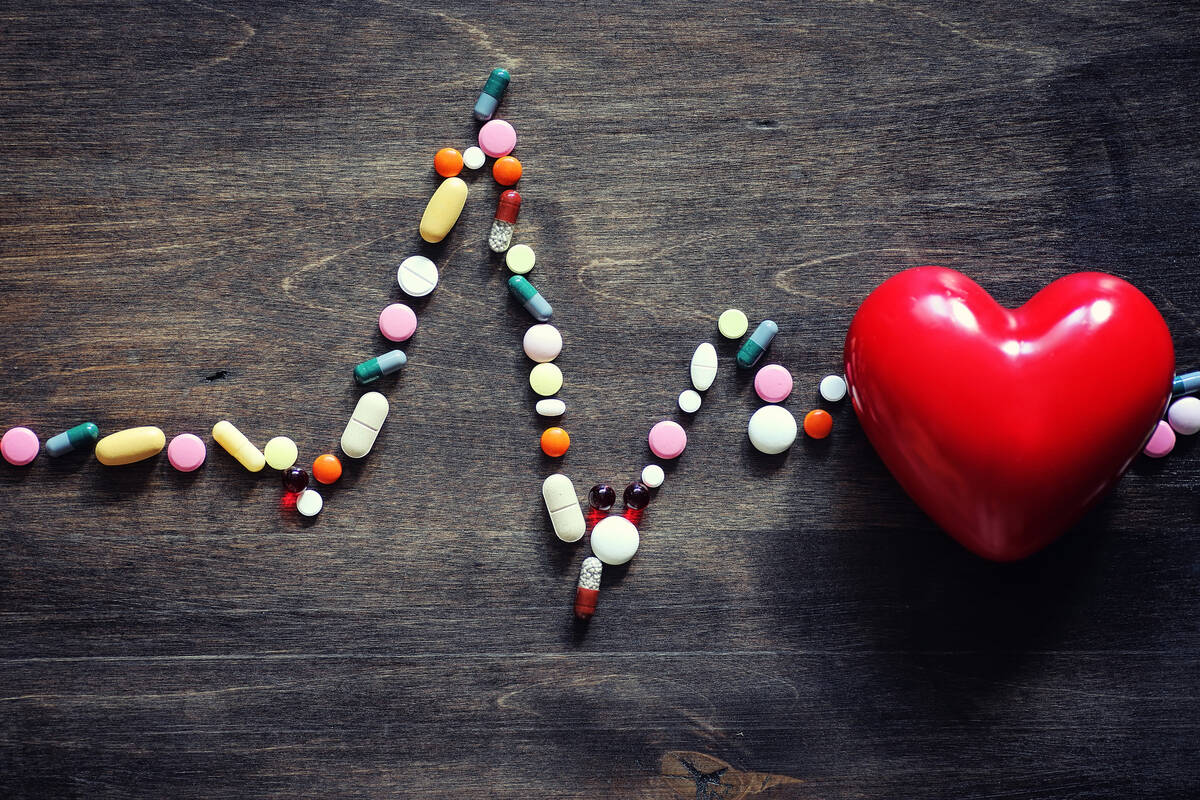Does taking supplements really benefit heart health?
We get it: When it comes to heart health, a lot of what cardiologists recommend simply isn’t fun — from working out when you’d rather binge-watch a show to eating leafy greens when you’re really craving pepperoni pizza. Wanting a quick fix to boost our cardiovascular health means supplements really sell.
There are a lot of supplements on the market, and because the Food and Drug Administration doesn’t review dietary supplements for safety, efficacy or labeling before they are put on the market, many of them make all sorts of claims about their benefits. Some of those claims are outright dubious, but a lot of people who take vitamins, minerals and supplements swear by them.
When it comes to heart health, are supplements helpful, harmful or useless?
We asked cardiologists what they think of using supplements for cardiovascular wellness.
Can supplements help?
Probably not, according to the heart doctors.
“Save your money and use it to take a vacation,” advises Dr. Richard F. Wright, board-certified cardiologist at Providence Saint John’s Health Center in Santa Monica, California. “Almost all supplements are worthless with regards to heart health.”
Wright says that a heart-healthy diet, such as the Mediterranean diet, is far more beneficial than any supplements, though there is one instance in which he says they might help.
“There are some individuals who might benefit from some supplements, such as the few who need vitamin D (a misnomer, as vitamin D is a hormone and not a vitamin), iron or high-dose omega-3 fatty acids,” he says. “But if one follows a prudent diet, most supplements will make no difference — other than in your pocketbook.”
Dr. Cheng-Han Chen, board-certified interventional cardiologist at MemorialCare Saddleback Medical Center in Laguna Hills, California, concurs.
“There are many supplements out there touted as beneficial for heart health. Some of the most popular ones include fish oil, CoQ10, folic acid and red yeast rice,” Chen says. “However, decades of research have not shown a clear benefit with over-the-counter supplements.”
Like Wright, Chen says it’s better to focus on your food than anything in a brown bottle.
“Supplements are unlikely to be beneficial in people who are otherwise healthy,” he explains. “I advise all patients to first focus on eating a healthy and well-balanced diet, as food will always be the best and most natural source of the nutrients that the body needs.”
How about fish oil?
While a lot of people swear by omega-3 and fish oil supplements, Chen says that the kind you are buying over the counter probably aren’t doing anything for your heart.
“Some research has pointed to omega-3 fish oil as being useful to help control triglyceride levels in the blood. However, the levels of omega-3 in over-the-counter supplements are widely varied and do not reach the levels found in prescription omega-3,” he says. “Similarly, the active ingredient in red yeast rice is a statin that can help improve LDL levels. However, the levels of the lovastatin in red yeast rice are much lower than in prescription lovastatin.”
That said, getting omega-3 and fish oil from actual fish like salmon and from other food sources like walnuts is actually great for you and can pose benefits to your heart, brain and even your complexion.
Some supplements may harm you
Chen reiterates that without FDA regulation for supplements, you may not always know what you’re taking, and that can be very scary.
“Patients should know that supplements are not regulated by the FDA, and thus the pills may not contain what they say on the bottle. In fact, they are often full of fillers or possibly dangerous substances,” he warns. “In addition, people should know that the ingredients in supplements may cause certain side effects that are undesirable.”
What’s more, Chen notes, is that you may be taking way more of certain vitamins and minerals than you need, and that can have detrimental effects on your health — including on your heart.
“I typically do not recommend supplements to my patients,” he says. “Research has shown that taking an excess amount of certain supplements (such as calcium, vitamin D and beta-carotene) could actually increase someone’s risk of heart disease.”
If you do want to take supplements, it’s important to look for the USP-verified label before purchasing supplements, which signals that a supplement has been third-party tested for quality and safety, or enter the name of your supplement on sites such as ConsumerLab or Labdoor.













